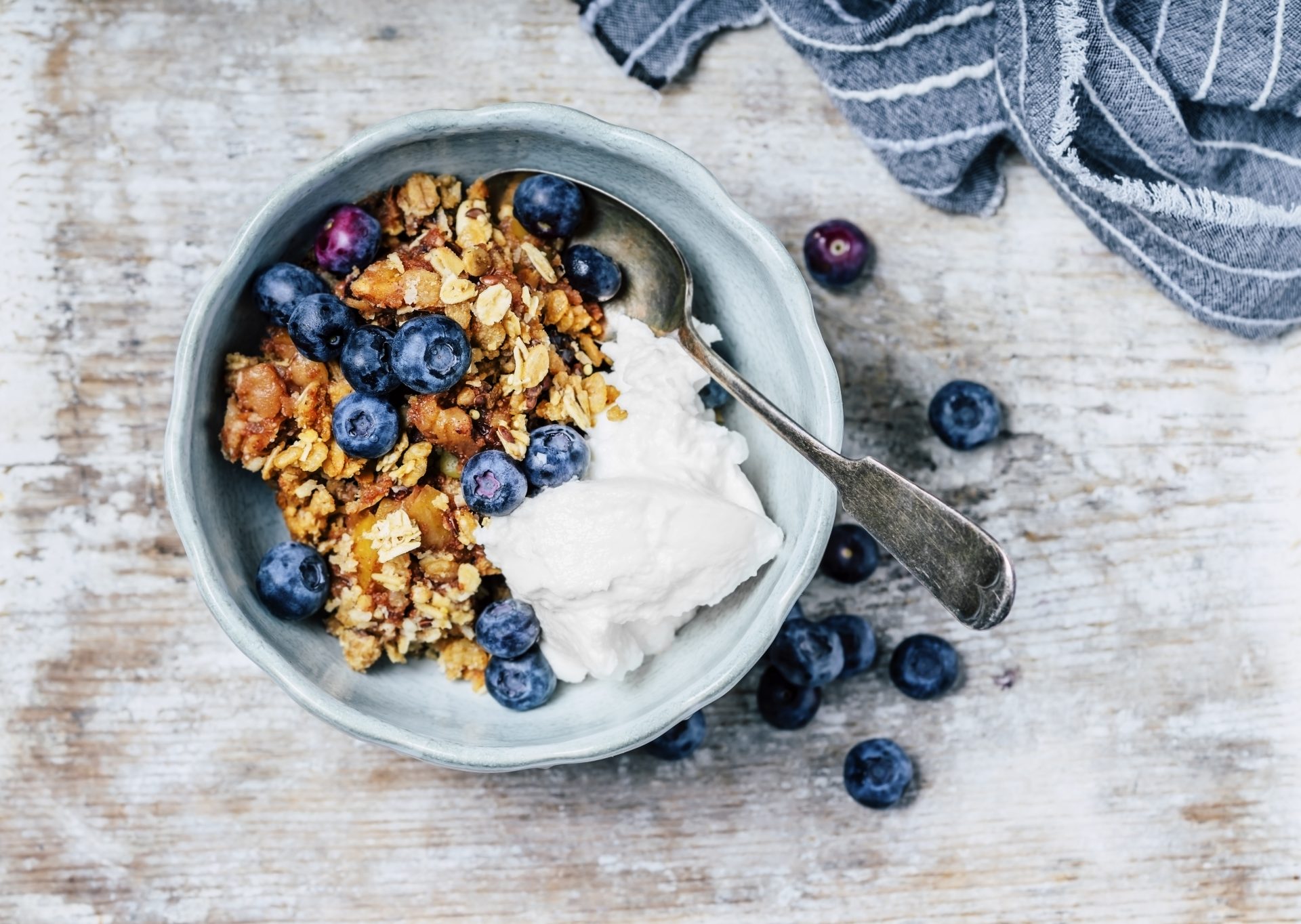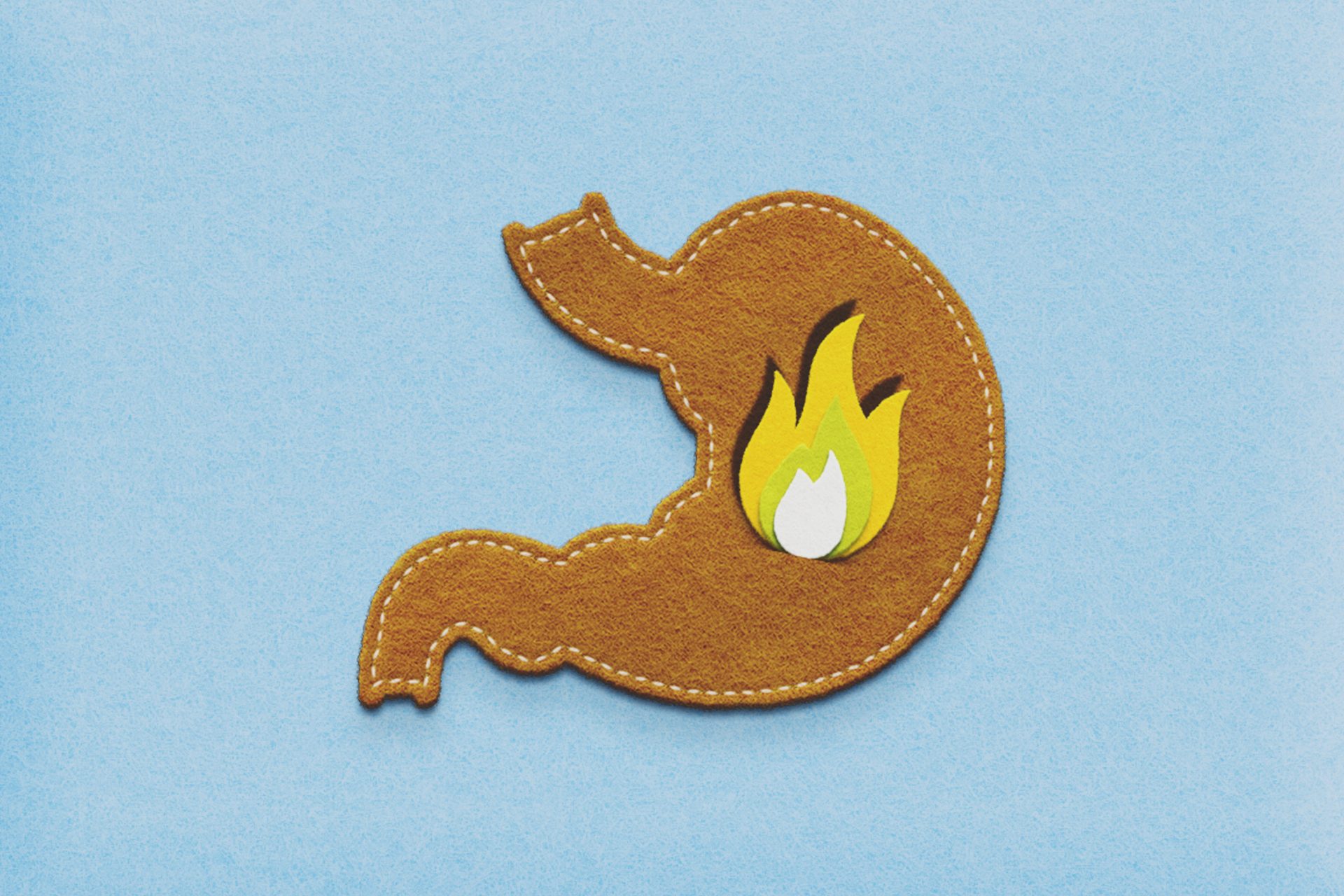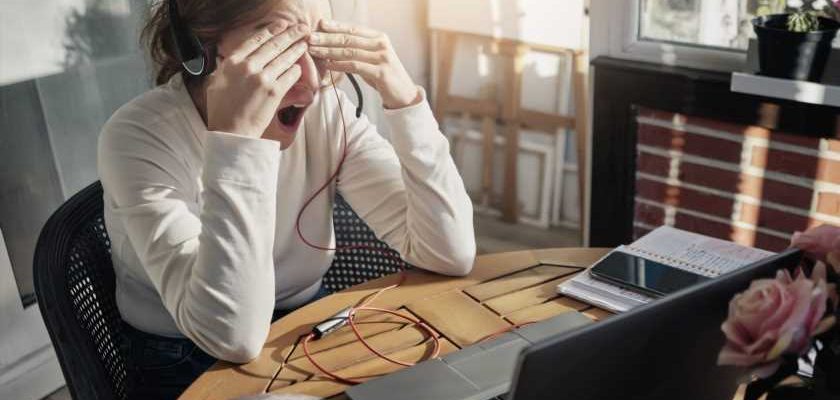This January, we’re on the search for quick, accessible hacks to kickstart 2023 in the strongest way possible. Today’s energy kickstarter: 8 things that are making you more tired (and solutions for each one).
Being full of beans until bedtime may well be your number one goal in life – perhaps because it’s something you constantly fail at – but even when you’ve had a solid eight hours of shut-eye, it’s still possible to feel like a drowsy slug the following day.
So, what’s going on? If sleep is only a small part of the energy puzzle, then what else might be sapping your resources? We’ve been consulting the experts about everyday issues that could be contributing to a lack of energy.
Bad posture
Hunching over our computers for hours on end and constantly looking down at our phones is a surprising recipe for tiredness.
“One of the main principles of pilates is that standing out of alignment can cause excess stress on our joints and muscles,” explains pilates and yoga instructor Eloise Skinner.
You may also like
“I tried dancing for 3 minutes every morning to see if it would improve my energy and mood– here’s what happened”
“In the long term, poor posture can cause muscle aches and tightness, often making us feel exhausted after we finish a day at our desks.
“One simple strategy to counteract this is to make time to stretch the spine a few times a day. Simple forward folds, gentle backbends and restorative twists can be great for winding down after a day at work.”
Bottling up our worries
“One of the biggest energy zappers is keeping our stress and worry to ourselves,” says Nicky Main, UK clinical lead at Wysa.
“Maybe we think we’re being strong or maybe we just don’t feel we can bother other people, but not opening up can really drain us and make us feel alone and unsupported.
“Whether you speak to a friend, a loved one or a colleague, or even use a mental health app or write in your journal, it’s important to take the time to communicate how you’re feeling.
“This can help you to feel more energised and motivated for the rest of your day.”
Not moving enough
It might sound counterintuitive but not exercising enough can make you feel even more tired. I know that on days where I wake up feeling sluggish, an energy-boosting YouTube yoga class can help me out of that funk.
“As well as boosting energy levels, exercise can improve your mood and help you sleep better, too,” explains Dr Helen Hartley, medical director at BUPA UK insurance.
You may also like
“Why am I always so tired?” Staying static has the same negative effect as a week of insomnia, study confirms
“Working out releases feel-good chemicals called serotonin and dopamine, which create a better sense of wellbeing, helping to reduce stress.
“Exercise doesn’t need to be long or strenuous – even 20 minutes a day could help increase energy levels and improve your fitness.”
Eating an unbalanced diet
The phrase ‘you are what you eat’ rings true, especially when it comes to feeling energised.
“A balanced diet includes all the vitamins, minerals and nutrients needed to keep you healthy and full of energy,” explains Hartley.
“Eating unhealthy and processed foods throughout the day, such as energy drinks and sugary snacks, can cause a rise in blood sugar levels. Sugar helps to give you a quick burst of energy, but the effect will soon wear off and leave you feeling tired.
“As a guide, aim for at least five portions of a variety of fruit and vegetables each day and opt for wholegrain alternatives of foods like bread, cereals and pasta. Along with beans and pulses, these release energy more slowly and contain fibre, which is important for good digestion.”

Consuming too much caffeine
Many of us wake up looking forward to our morning cup of joe; it helps us feel more awake and alert, thanks to the naturally occurring caffeine in coffee beans. However, when caffeine is relied on too heavily, it can run the risk of leaving you feeling even more tired.
One sleep deprivation study showed that while hourly doses of caffeine allowed subjects to stay awake, it also increased subjective sleepiness. This is because our bodies release a chemical called adenosine during the day – it’s released at decreasing levels as the day goes on to let us know it’s time to wind down. Caffeine blocks adenosine receptors, helping us to feel less sleepy, but the body keeps producing the chemical, which causes a build-up. This can then make us feel even more tired the next morning, prompting us to rely even more on the arabica, creating a vicious cycle.
Not drinking enough water
Our bodies are made up of around 60% water, while the brain itself is 80% water, so staying hydrated is essential for good health. Dehydration lowers blood pressure, decreasing blood flow to the brain and muscles, making you feel lethargic.
Studies consistently show a link between dehydration and mood, with subjects reporting fatigue and reduced levels of alertness when they hadn’t consumed enough water.
The NHS advises drinking six to eight glasses of fluid a day, but a growing body of experts say that you should simply drink to thirst. If you feel energetic and hydrated after two cups of tea, a pint of beer and two small classes of water, that’s fine; if drinking three litres of water a day suits you, great.
Poor digestion
Have you ever noticed that you feel more lethargic when you’re constipated? That’s because poor gut health can contribute to tiredness – but why?
“Digestion requires a lot of energy,” explains Marilia Chamon, registered nutritional therapist and founder of Gutfulness Nutrition.
“When we eat, the parasympathetic nervous system increases blood flow to the gastrointestinal tract, and that can reduce blood flow to other organs, including the brain.
“If you have poor digestive output, your body needs to work harder to break food down and that can lead to decreased energy levels.”

Not knowing your limits
Hustle culture tells us we need to be working all hours of the day to achieve our professional dreams, while also somehow finding time to eat well, work out and spend time with our loved ones. Unsurprisingly, this can lead to burnout.
“Setting boundaries is one of the most important and effective ways to protect your energy and remain in control of your health,” says Hartley.
“Try to keep your list of activities on a ‘must-do’ basis, especially if you’re feeling overwhelmed. This will help you prioritise what’s most important to you.”
It goes without saying that if you’re concerned about persistent fatigue, it’s best to speak to your GP.
Images: Getty
Source: Read Full Article
